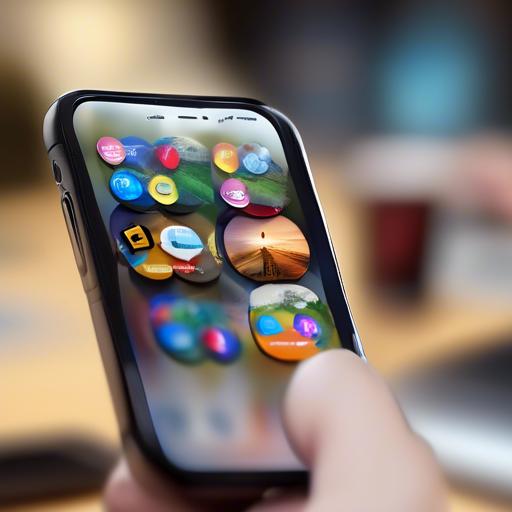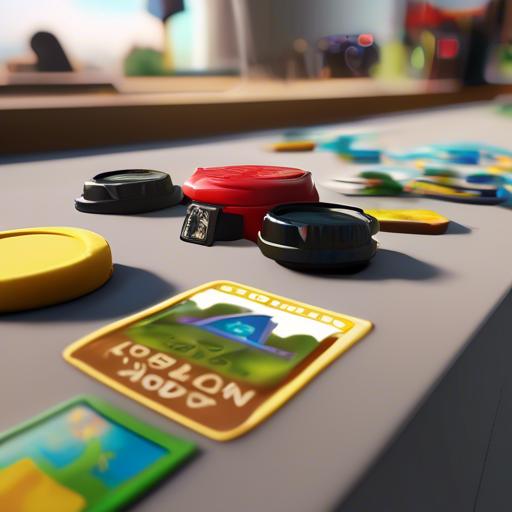As I was exploring my iPhone settings, I stumbled upon a feature that I had never paid much attention to before – badges. curious to learn more, I delved into the world of iPhone badges to uncover their purpose and how they can enhance my user experience. Join me as we unravel the mystery behind badges on an iPhone and discover the hidden potential they hold.
understanding the Purpose of Badges on Your iPhone
Badges on your iPhone are those small red circles that appear on app icons. They indicate the number of notifications or unread items within that app.These badges serve as visual alerts to let you know when you have new messages, emails, updates, or other activities that require your attention. They help you stay organized and prioritize which apps need your immediate focus.
By having badges on your iPhone, you can easily see which apps have new information for you without having to open each app individually. This feature saves you time and keeps you informed on the latest updates from your favorite apps. Whether it’s a missed call, a new message, or a pending task, badges help you stay on top of your digital life in a convenient and efficient manner. Take advantage of these badges to streamline your app usage and optimize your productivity on your iPhone.
| App | Number of Notifications |
|---|---|
| 5 | |
| Messages | 3 |
| Calendar | 1 |
Maximizing Productivity with Badge Notifications
A badge notification on an iPhone is a small red circle with a number inside that appears on the corner of an app icon. These badges serve as visual reminders of unread messages, notifications, or tasks associated with that specific app. They can definitely help you stay organized and on top of critically important information without having to constantly check each app individually.
By maximizing the use of badge notifications on your iPhone, you can significantly boost your productivity.Here are a few tips on how to make the most out of badge notifications:
- Prioritize your apps: Customize which apps display badge notifications to focus on the most important ones.
- Clear notifications regularly: Don’t let badges accumulate, as it can cause unnecessary stress or distraction.
- utilize app grouping: Group similar apps together to streamline your notification management process and reduce clutter.
| App | Unread Messages |
|---|---|
| Messages | 5 |
| 2 |
Customizing Badge Settings for a Seamless User Experience
Badges on an iPhone are small visual indicators that appear on app icons to provide users with important information at a glance. These badges can display various notifications, such as unread messages, missed calls, or pending updates. Customizing badge settings allows users to tailor their notification experience for a seamless and personalized user experience.
With the ability to customize badge settings, iPhone users can prioritize which notifications they wont to see on their app icons. By enabling or disabling badge notifications for specific apps,users can streamline their notification center and ensure they only see the most relevant information. Additionally, users can choose the size and color of badges to match their preferred aesthetic, creating a visually pleasing and cohesive display on their home screen. Customizing badge settings enhances user control and allows for a more intuitive and user-amiable interaction with their device.
How to Manage Badge Notifications for Optimal Efficiency
Badges on an iPhone are small red circles that appear on app icons to indicate new notifications or updates. These badges can be helpful in keeping track of important information without having to constantly check each app individually. However,managing badge notifications for optimal efficiency is key to preventing overwhelm and staying organized on your device.
To effectively manage badge notifications, you can follow these tips:
- Prioritize critically important apps: Determine which apps are essential for you to stay updated on and focus on managing badges for those first.
- Customize notification settings: Adjust notification settings for each app to control which notifications trigger badges and which ones do not. This can definitely help reduce unnecessary clutter on your screen.
Q&A
Q: What are badges on an iPhone?
A: Badges on an iPhone are little red circles that appear on the icons of apps when there are notifications or updates waiting for you.
Q: How do badges work on an iPhone?
A: Badges work by displaying a number on the corner of an app icon, indicating how many notifications or updates are pending for that app.
Q: Can I turn off badges on my iPhone?
A: Yes, you can turn off badges for specific apps or for all apps on your iPhone. Simply go to Settings, then Notifications, and you can customize the badge settings to your preference.
Q: are badges on an iPhone useful?
A: Badges can be useful for keeping track of important notifications and updates without having to constantly check each app individually. Though,some people find them distracting and prefer to turn them off.Q: Can badges be customized on an iPhone?
A: Yes, you can customize badges on your iPhone by choosing which apps display badges, adjusting the size and color of the badges, and even choosing to display badges as numbers or dots.
Q: What is the benefit of using badges on an iPhone?
A: the benefit of using badges on an iPhone is that they provide a visual cue for notifications and updates, making it easier to stay on top of critically important information without having to constantly check your phone.
Insights and Conclusions
As we wrap up our exploration of badges on an iPhone, it’s clear that these little icons play a big role in keeping us informed and organized. Whether they’re alerting us to new messages, reminding us of critically important tasks, or simply letting us know about updates, badges are an essential part of the iPhone experience. So next time you see that little red circle with a number, take a moment to appreciate just how much information it’s giving you at a glance. And remember, staying on top of your badges can definitely help you stay on top of your digital life. Thanks for reading!


